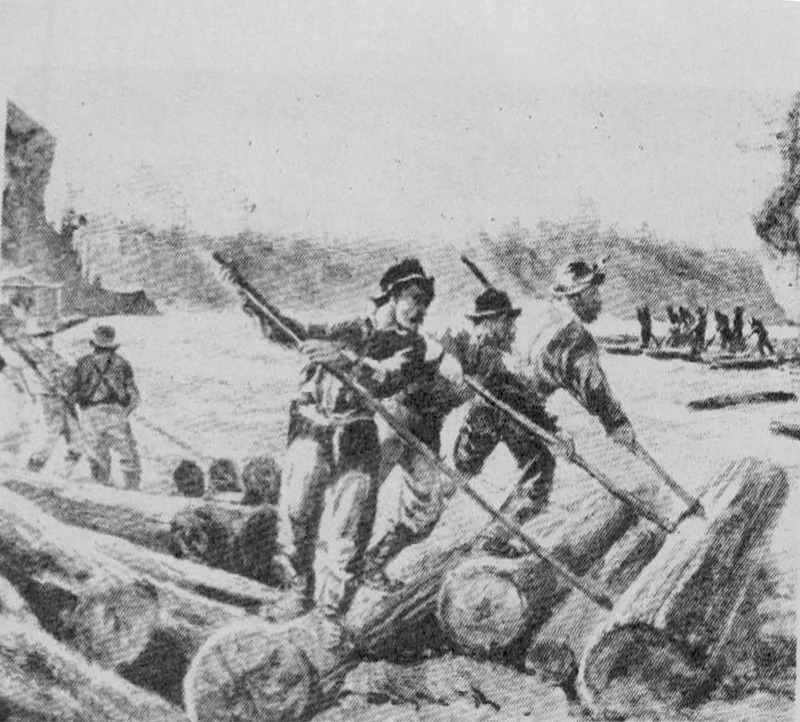
HISTORICAL EVENTS THAT TOOK PLACE ON THIS DAY IN CANADA
8 February

Breaking a jam, 1908
Loggers Dispute New-Brunswick-Main Border
Come all you jolly lumber men,
Whose better years have fled,
And I will sing of halcyon days
Before we had confed;
When title to respect was writ
Upon each horny hand
And the man who swung a broadaxe
Was a power in the land
-Headley Parker, 1899
===============
The whole territory we were wrangling about was worth nothing
-Lord Ashburton, 1843
Canada and the United States have not fought a war against each other officially since 1814, but in 1839 there was a "war" fought mostly with fists and axe handles. It was along the New Brunswick-Maine border and the warriors were lumbermen. Hence, it is known in history as "the war of pork and beans," or the Aroostook Controversy.
The root of the problem was that the border had never been clearly defined. The King of the Netherlands was asked to arbitrate, but his recommendations were rejected by the United States immediately, and later by Britain.
Logging along both sides of the border was controlled by powerful lumber "barons" who were not always careful about the areas into which they sent their gangs. One of the barons was "General" Sam Veazie, who owned a railroad and fifty sawmills.
Most of the trouble was in the richly pine-clad Aroostook Valley, now one of the finest potato-growing districts on the continent. The worst battle broke out on February 8, 1839. Under normal circumstances, the fighting among loggers might not have caused much alarm, but the situation was dangerous because of the dispute about the location of the border. Furthermore, the rebellions in
Upper and Lower Canada in 1837-1838 had led many Americans to believe that Canadians wanted to join the United States.
Maine and New Brunswick called out their militia. Nova Scotia passed an appropriation for defense, and British troops were rushed from Halifax to guard the border along the St. Croix River. The United States Congress voted $10,000,000 to raise a force of 50,000 men if required.
Fortunately, London and Washington, realized the seriousness of the situation. President Van Buren persuaded the Governors of Maine and New Brunswick to arrange a truce. Britain and the United States then took steps to agree on a border, and the Ashburton-Webster Treaty provided a settlement in 1842.
OTHER NOTABLE EVENTS ON THIS DAY IN CANADIAN HISTORY
8 February
-1850 Prime Minister Lord Russell of Britain predicted Canada's independence.
-1855 A railway opened from Halifax to Truro and Windsor, Nova Scotia.
-1905 Sir James Pliny Whitney formed the first Conservative government of Ontario since 1872.